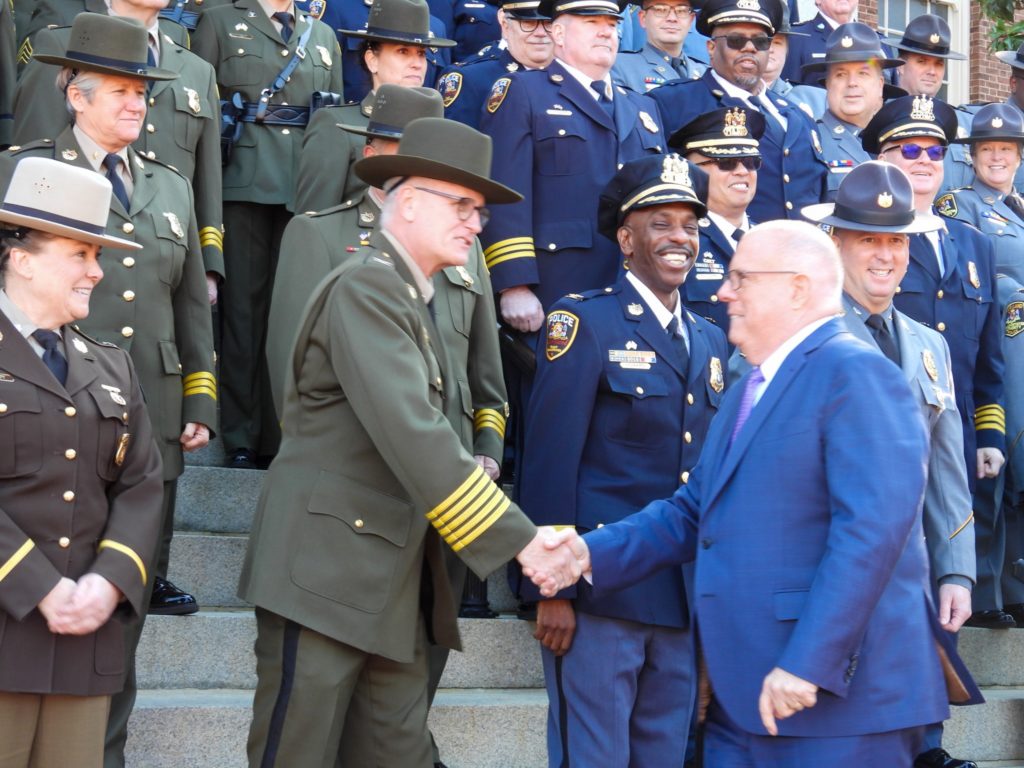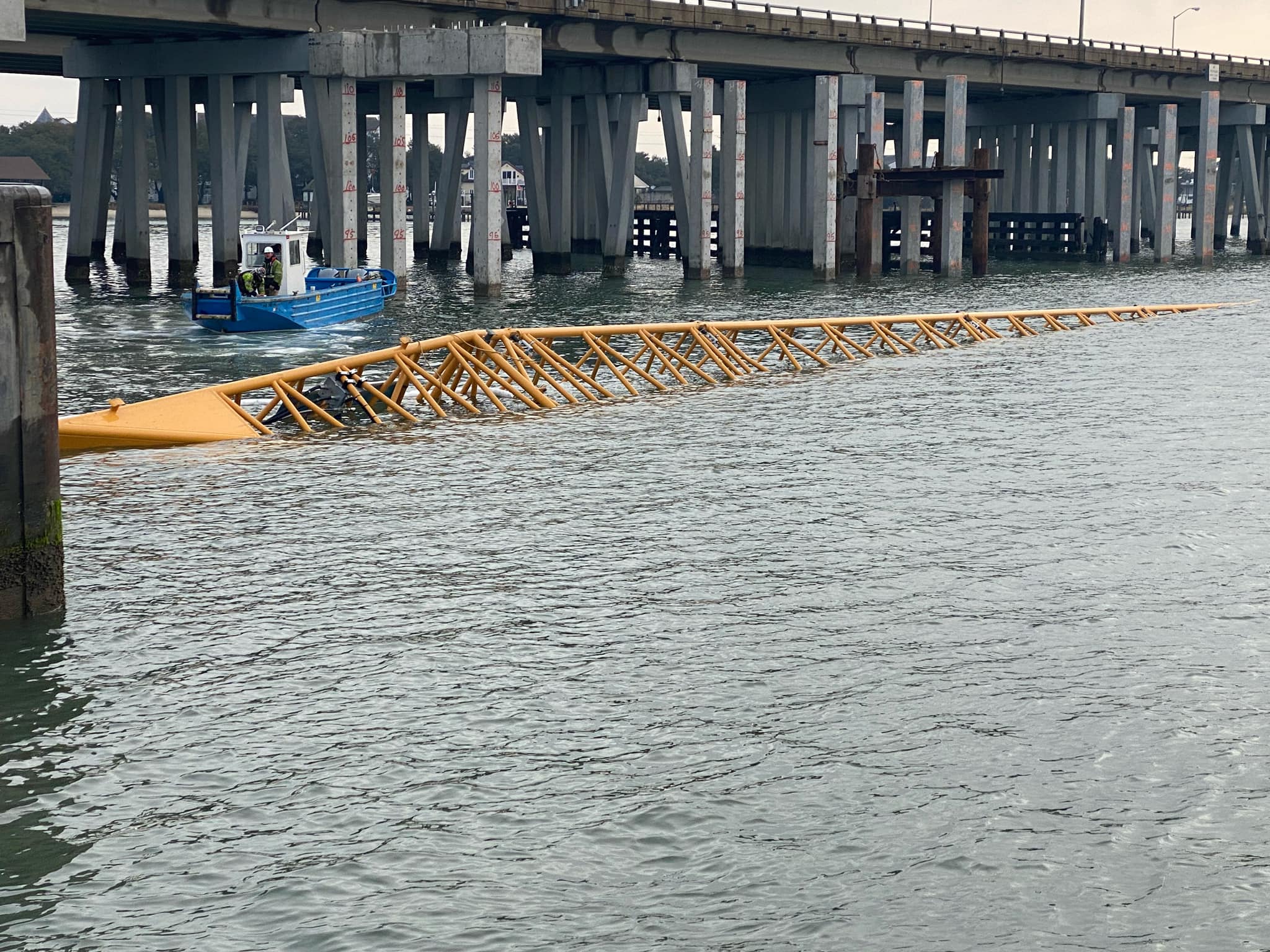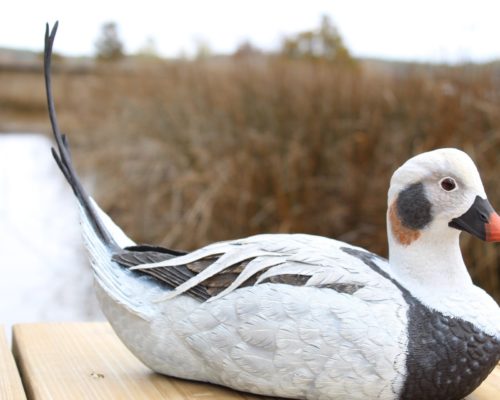The Maryland Natural Resources Police (NRP) are the authorities who show up in some of the Bay’s biggest boating emergencies and scariest moments on the water. They also enforce laws protecting and regulating the Chesapeake Bay’s crucial resources, like rockfish and crabs.
This week, NRP’s leader, Col. G. Adrian Baker, retired after 38 years in law enforcement. Baker has been NRP superintendent since September 2019, but began as an NRP officer in 1984. He was chief of police for Chestertown, Md. for seven years where he retired as a captain. Then Gov. Larry Hogan’s administration asked him to return to police work and lead NRP.
Baker officially retired on Monday, a day that’s observed nationwide as Police Appreciation Day. He was honored by Gov. Larry Hogan at a gathering of law enforcement in Annapolis. Our own Cheryl Costello spoke one-on-one with Baker in his final hours at work about NRP’s biggest challenges on the Bay.
Cheryl Costello: You were the chief of Chestertown Police before you came to lead Natural Resources Police. How is NRP different from any other local police agency?
Col. Baker: “We are responsible for everything that any traditional, municipal police agency or sheriff’s office or state police agency has to do—general crime, traffic, drugs, whatever. In addition to that, we have to also enforce the natural resources laws. And that, number one, puts us in an environment like no other police agency because we’re back in the middle of the woods, we’re in the swamps, we’re in the marshes, we’re out on boats, we’re up in the mountains. We are by ourselves usually in that secluded environment, so it means we have to be very self-sufficient and able to take care of ourselves.”
What do you see as the biggest threat to boating safety?
“It’s a very difficult environment for the best trained and prepared people … the wind, the sun, the waves, the tide, just operating a huge vessel that you can’t put the brakes on. There’s no lanes to keep it in, no traffic lights or anything else, so you have to know what you’re doing and I think, quite frankly, I think a lot of people are very novice and not prepared to overcome those difficult situations.”
In so many boating fatalities, the victims are not wearing life jackets. What will it take to make them a common practice like seatbelts?
“If we had a law that mandated it, that would eventually get us there. Quite honestly, you might not expect me to say this, but I think we might get there quicker if there was [better] technology, and by that I mean the life jacket itself. And they have greatly improved … you’ve probably been around long enough to remember the great big puffy orange life jackets that your parents made you wear.
Now we’ve come to more of a vest type thing, I think people are certainly more willing to wear that. My poor officers are wearing body armor and a lifejacket in the summertime, in a boat that’s open … I think if it was like more comfortable and less cumbersome, even more so than what we have maybe then people would be more likely to wear them … This is kind of silly, but maybe it would be like inflatable shorts.”
Your public information officer, Lauren Moses, says one of the reasons you returned to Natural Resources Police in 2019 was to promote diversity. Why is diversity so needed, in all places, but particularly for NRP?
“We have a particularly large user group in the Hispanic population in our state parks. Our Natural Resources Police are responsible for enforcement in the parks and it is helpful to relate to that population with someone who looks like them and speaks the language too. I think it’s just human nature to have more of a trust that way, I guess. And from the department’s point of view, it’s just great to have different people from different places who do different things and have different ideas.”
Have you made strides in that area?
“It’s difficult to hire a police officer in general now. We’ve seen our recruitment efforts, not specific to race and gender, overall drop quite a bit in the last five years, I guess. A lot of people just don’t want to be the police. And so a spin on that, there are then less diverse applicants also.”
Natural Resources Police issued citations this summer and fall for various violations of Maryland conservation laws. How has doing such things as illegally harvesting blue crabs hurt our waterways?
“I guess our first goal is education. So we’re not about writing tickets and costing people money and trying to be a bad guy, so to speak. We will be if we have to be. In most cases, the public that we deal with are just out trying to have a good time. With regard to the citations that we issue—and again our ideal situation is we’ve educated the public and they don’t do it—we may use a warning as a tool in education, and frankly, we’re using a citation as an education tool as well.
Our resources are limited and we want to make them available for as many people to enjoy [as we can] but we also have to make sure that they’re sustained. The biologists work very hard to determine what that particular resource can stand. Like you mention crabs, every year you hear about the crab survey and there’s limits and regulations change annually based on those studies If we just ignore that, we’re going to lose that resource or we’re going to have strict limitations where no one can enjoy them.”
What has changed for your department since the boating boom during the coronavirus pandemic?
“The Natural Resources Police went full speed ten times ahead.
I wish we could have said we got to hire 50 percent more, but it doesn’t work that way. We have to get our positions approved through legislation and all that takes time and money. And we have to argue against a whole lot of other people who have their ideas for the state dollar to be spent. And we really have not increased our work force significantly or hardly at all. So what that means is we just have to work more and work harder and that’s taxing on our officers. Any opportunity in the future that we can have to expand our force is certainly necessary and we would welcome the chance to do that.”
What advice would you give the next superintendent?
“I would tell the next superintendent to trust his senior staff who are seasoned and have many, many years of experience, particularly if that next superintendent comes from a different agency and doesn’t understand what we do …The priority is conservation and I would tell that superintendent to never forget that … conservation and boating.”
Baker says he plans to stay in Maryland and find another job that allows him to still manage people and tap into his experience with the outdoors. “I’m not ready to hang it up yet,” he tells us.
-Cheryl Costello




